Emily Weiss went from beauty blogger to beauty brand founder and CEO in three short years. Her company, Glossier, was revered as the makeup brand of the 2010s. Behind its ‘glossy’ exterior, however, the company wasn’t all that it seemed.
Here, journalist and author Marisa Meltzer takes marie claire inside the walls of the fascinating company, in an extract of her best-selling book, Glossy: Ambition, Beauty, and the Inside Story of Emily Weiss’s Glossier.
It should come as no surprise that the dominant color in the SoHo office was Glossier pink: on upholstery, in the bathroom. It was in the Byredo Burning Rose candles that perfumed the air and in the colors of the roses favored by Brittany Asch of Brrch Floral, who did the flowers for the Glossier offices and Weiss’s apartment. Someone who was an intern in the public relations department remembers learning a lot about flowers from watching Asch reflexing roses—florist-speak for turning some of the petals outward or unfurling them—as she prepared the arrangements. Another employee recalled trying to wash her hands before a meeting; it always felt like there were four cute girls with stems everywhere taking up valuable bathroom space, she said. The flowers represented a folly and an overly expensive obsession with external appearances. “They were pretty and interesting and weird, but at the same time it was like, why don’t you give me a raise?” said one employee. Another former tech employee said her joke was that “I was going to mash one of those orchids with my hands.”
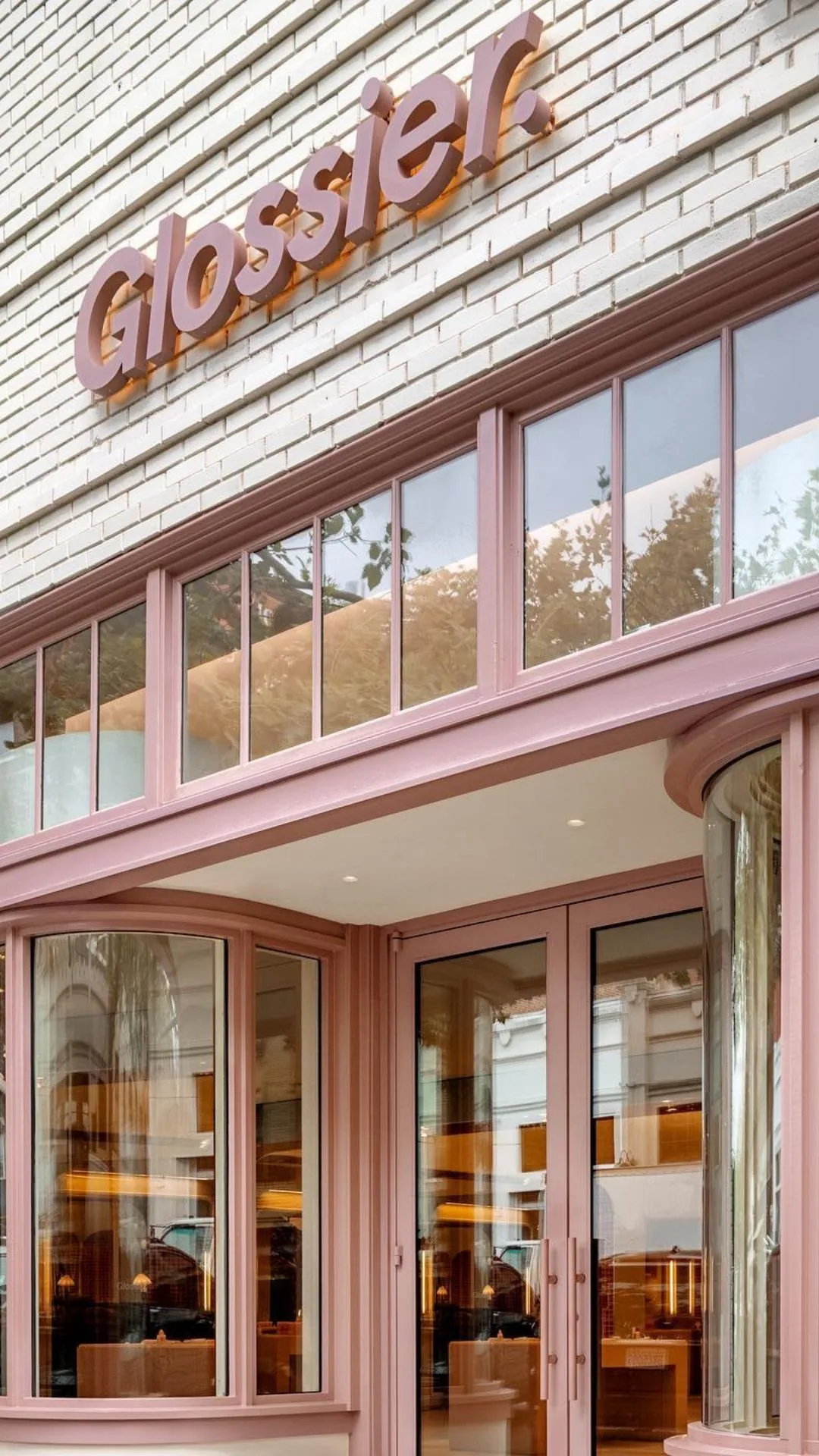
The kitchen was large, with double-door clear glass refrigerators, the better to show off the lavishly stocked coconut waters and yogurts and fresh berries that were always perfectly lined up, labels facing forward. But like the flowers, the snacks were considered symbolic of the company’s commitment to exterior appearance. “The organic everything was frustrating to me because they gave me, like, a six percent raise one year,” said one disgruntled employee.
There was a huge closet, really more of a room, full of product samples sent to Into the Gloss, where employees (and sometimes the interns) would get in line and say what category of product they needed, whether a body lotion or a mascara, and an Into the Gloss editor would select one for them as a gift. The bathrooms, which were gender-neutral, were fully stocked with the Glossier line for touch-ups and had $29 bottles of Aesop’s Post-Poo Drops in each stall. It was a similar lineage to tech giants like Apple or Google that built out their corporate campuses so well that employees would instinctively spend more time there. It’s another way Weiss was a representation of the tech culture she so strived to be a part of.
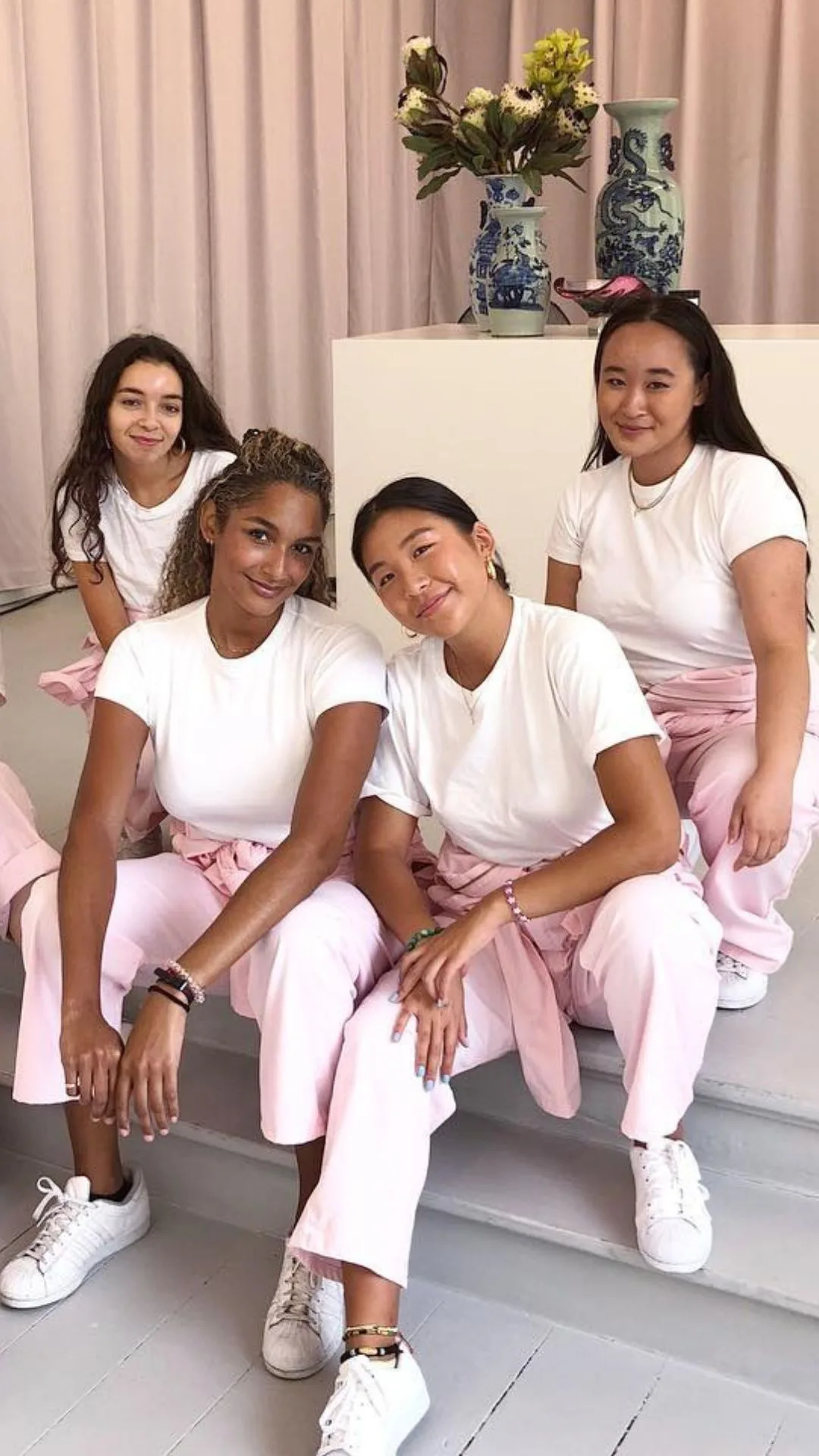
At times working at Glossier could feel like a dream job; it could feel like you were special just for getting to work there. The mere mention of working at Glossier could make a stranger’s eyes at a party light up and trigger eager questions about working there and what Emily Weiss was really like. Even as Glossier grew, it resembled the halcyon early days of the small team at Into the Gloss. Weiss wrote in September 2015 on Into the Gloss, “What was once me in my apartment with a cat and spotty wifi is now me and one united team of 38, covering three floors of a Soho office building (with spotty wifi). We have . . . exactly one photographer, two interns who got promoted to full-time hires, a former competitive figure skater in Marketing, an amateur astrologer in Creative, weekly happy hours where we eat Domino’s pizza, product-naming group chats, conference rooms called Beyoncé, Rihanna, and Madonna, dogs named Marni, Buttermilk Biscuit, and Quincy.”
Glossier could be an idyllic place where employees bonded, going to dance classes together after work. Departments had budgets for activities and would go out for red sauce Italian food or hire a tarot card reader. They bleached their eyebrows in the company bathroom and did Instagram stories of employees testing out snacks. They chatted all day in Slack about celebrity gossip, but with people who were better than just strangers on the internet; these were people who were very smart and arch and funny. They had an Ask Glossier Slack channel that was like a real-time version of Into the Gloss. “You could be like, ‘Hey, I’m looking for a dry shampoo for my hair. I get oily really fast and I hate the feeling of the weight of a dry shampoo,’ and then, like, eighteen people will chime in and be like, ‘You just tried this one?’ ” You could ask for a good place to go get coffee with a potential candidate. One employee who didn’t come away liking her brief stint at Glossier still has tried and failed to re-create the magic of Glossier’s Slack channels at every job she has had since.
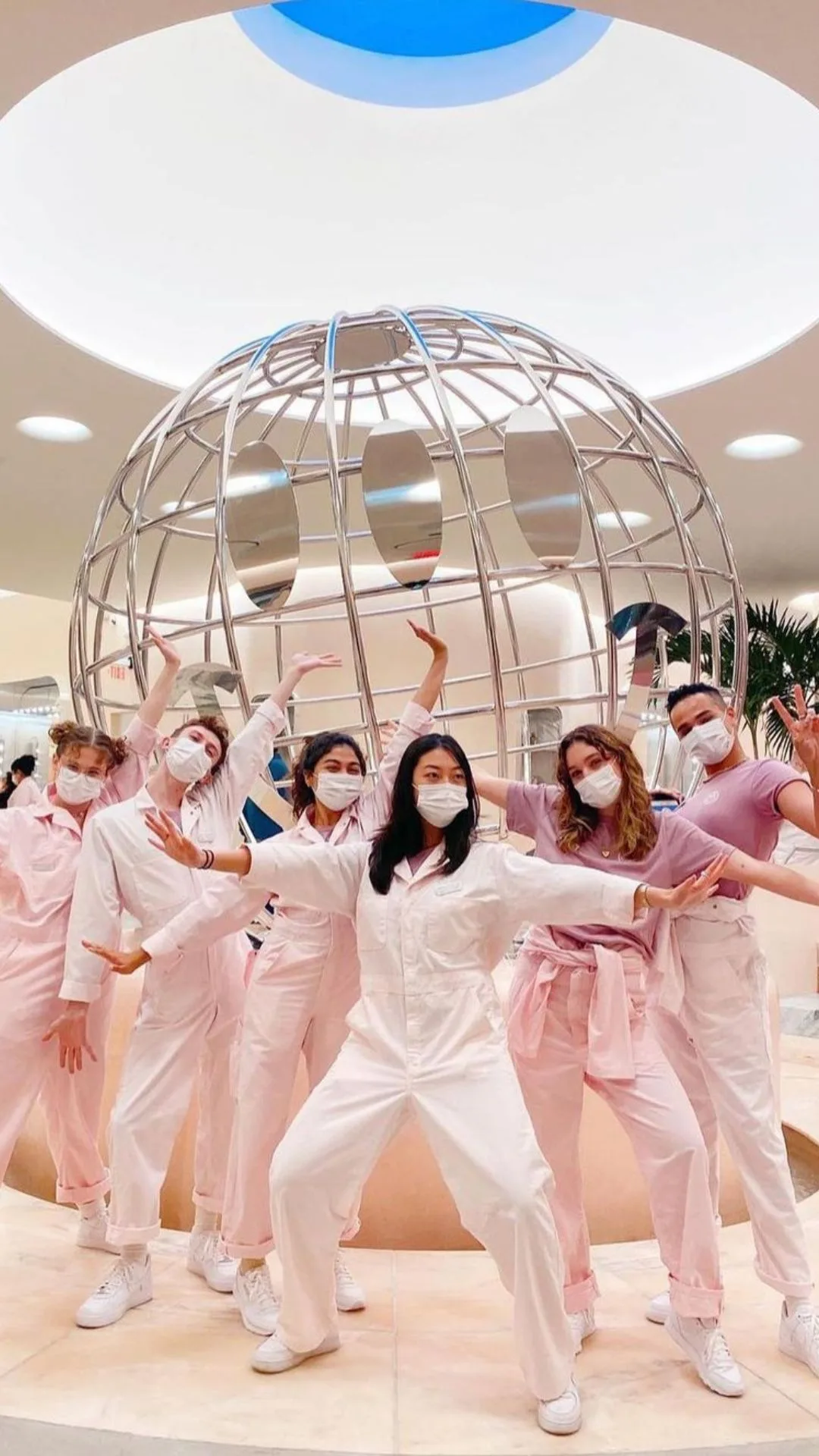
Weiss said there was a no-asshole rule, but there was an environment of mercuriality around the office. She could also be hot and cold with her staff. “Emily was pretty approachable, especially for someone who seemed like such a cool girl,” said an employee. “I had watched a bunch of interviews with her, I had watched The Hills. I thought she was going to be a little bit more lofty, and I was pleasantly surprised.” The younger employees in particular revered her and were quicker to be impressed by Weiss and put her on a pedestal than somewhat older ones who arrived as veterans of big companies. “People that young are also easily intimidated by someone that’s more powerful, right?” said someone who came to Glossier in their thirties from a large tech company, who pointed out that tech CEOs do the same thing, playing the line between employees revering them and fearing them.
“Everyone has Emily Weiss stories,” another employee said. There would be whispers in the offices that she was being sweet that day, hanging out in the kitchen, grabbing a yogurt. Someone would chime in that Weiss had asked her how her day was going, so it was a good day. But she could switch, smiling at a staff member and then suddenly asking, very intensely, what was going on with a project. Or offhandedly make a comment about how a female staff member resembled her mom or that someone else was so much thinner than Weiss was.
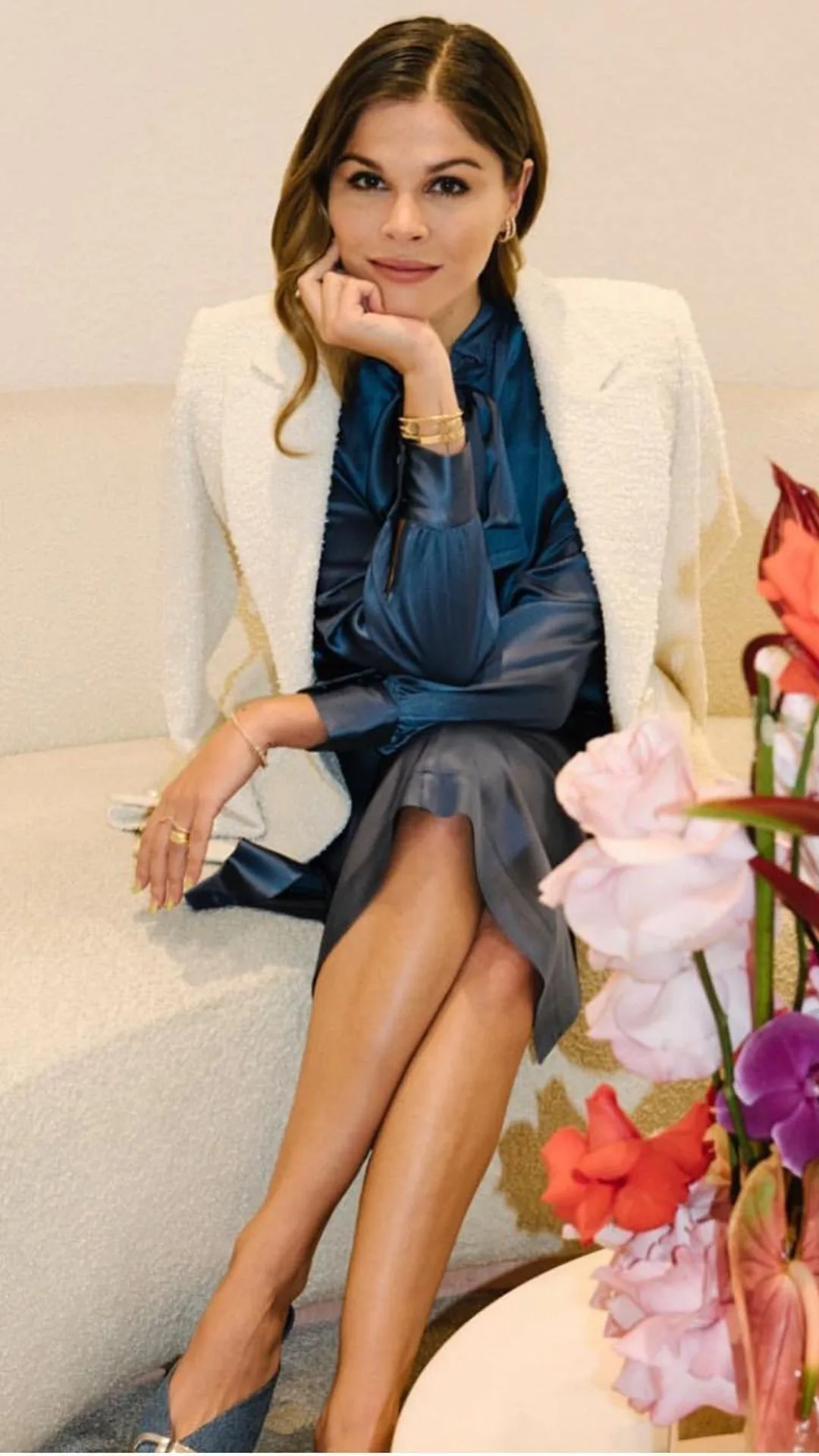
There was a draconian no-mess, clean desk policy. Weiss was so bent on the company being seen as part of tech culture, rather than fashion or beauty, that the company got more and more strict about dress codes. The idea was that if celebrities or investors or famous thinkers were coming around for fundraising or fireside chats or board meetings, then employees should look neat and professional. But sometimes that was done in a way that felt passive-aggressive. An employee might see Weiss eyeing her shorts, see her speaking to a manager, and then be told that her shorts were too short. They weren’t sent home to change, but it was embarrassing nonetheless. “It felt like a zoo, to be the Glossier girl and have a cute outfit,” says a former employee. “Everyone starts wearing the same scrunchie and it’s like, do I have to get that scrunchie now?”
Glossier might have made real progress in disrupting the beauty industry, but for employee culture and salary, there wasn’t much beyond surface differences with most other companies. On Glassdoor, the anonymous website where employees can rate workplaces, there were plenty of critics of Weiss and the office culture at large. Low salaries were cited. Interns were paid low wages—at least one reported she made around $12.50 an hour, which is not enough to live on in New York City, or even in the suburbs, without supplementary income. But getting another job was difficult because interns were expected to work the same hours as the rest of the office. “No boundaries, even your social media is judged and commented on. People are just plain rude, probably because they’re burntout and miserable,” was a typical comment.
None of these things are real offenses, particularly in the era of real #MeToo criminality, which roughly coincided with the rise of Glossier. Office culture in general could probably benefit from some more formality in helping employees create boundaries between themselves and their careers. But Glossier was a company that was about democratizing beauty, whose brand was about showing up and being yourself. That set up a high expectation for how employees were supposed to represent themselves and, in turn, be received. Employees were expected to embody the brand, only to be told that the way they embodied it wasn’t quite up to par. That dynamic sets up a flawed, girl boss-style progressivism.
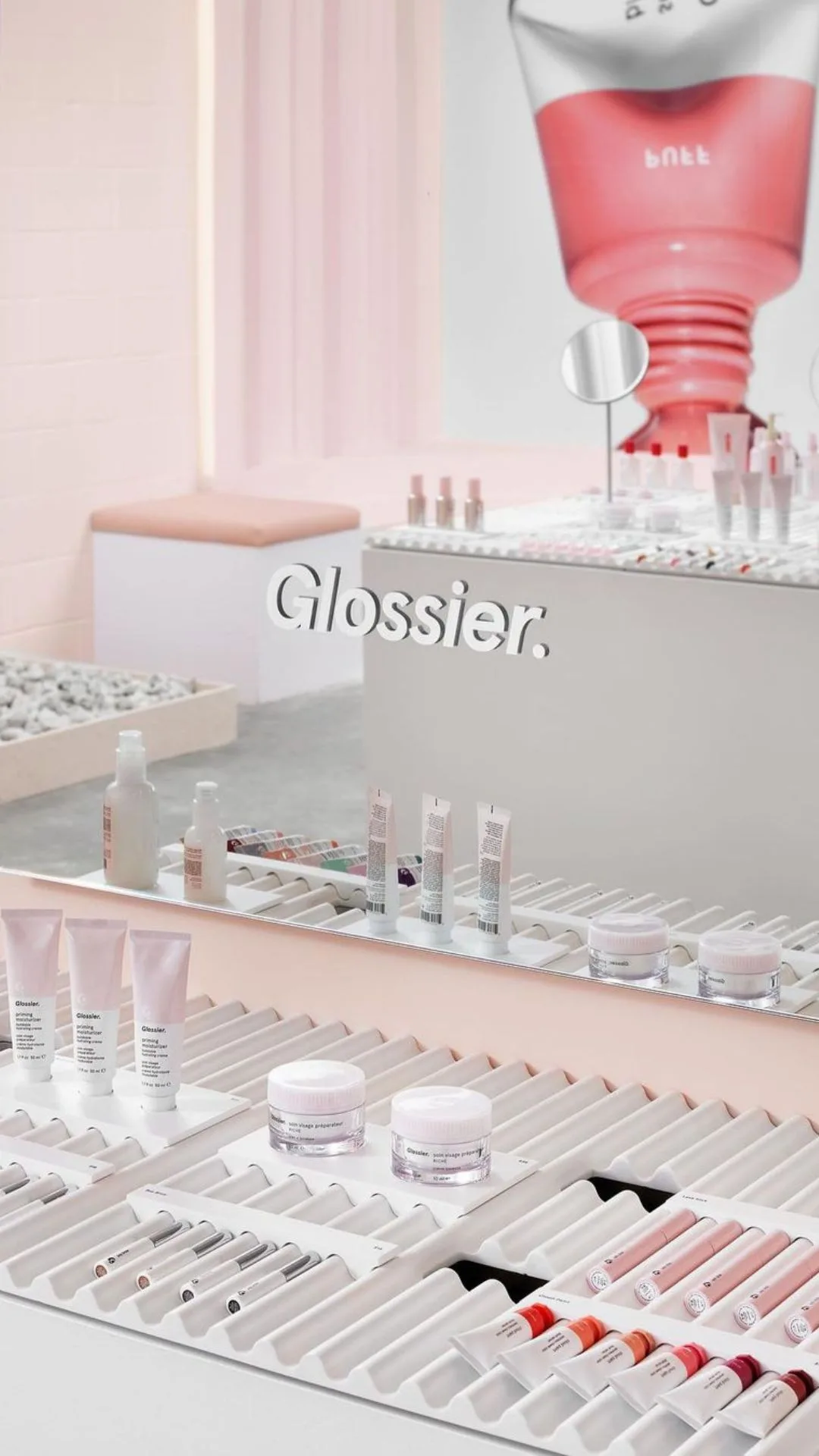
Close observers of the company, former employees, and friends of friends of friends whispered about the company being generous with one thing: signing nondisclosure agreements. More than one former employee remembered having to sign one as part of the hiring process. According to a 2017 paper by the Vanderbilt Law Review, about one-third of the workforce in the United States was bound by one. Whether those agreements are common, I have found, depends on the industry. In entertainment they certainly are, where someone might know something about celebrities of some stripe, or financial information pertaining to public figures, or could potentially spoil the plot of the announcement of a project. They’re frequent at tech companies to protect proprietary information. That seems to be what Weiss was after. She was a person who clung to her personal privacy too. But perhaps the real reason was the sheen of having something to protect and something competitors wanted. Weiss may have wanted Glossier to seem like an office of brilliant, game-changing ideas and have the same renown as the tech companies she so looked up to.
“My low point was being cornered in a room and yelled at for forty-five minutes and crying and everyone watching me while I was facing the glass. My boss was yelling at me, and meanwhile her face was on [an ad on] the side of the building,” someone who worked in marketing said, not naming the person in the ads who had terrorized her. Even some employees who were not satisfied at Glossier didn’t want to make waves or get fired because working there was so good for their résumés. According to the same marketing employee, “People of color really had to experience messed-up comments. People who worked in retail single-handedly had to create pop-ups and be put in messed-up situations with lack of accountability, lack of diversity training, no real HR team.” It’s true that the HR department was something of a cobbled-together afterthought. “Firing people was not their strong point. There were hires we made that maybe weren’t the best fit, but it’s a pretty normal thing to have to learn how to fire people and get good at that,” said someone who worked in that department. “When the team was that close, though, firing people was a big deal.” Like who? I asked. “Early team members. I’m not going to name them by names, they might not want their firing to be in a book.” Whether they were officially fired or not, two early hires ended their time at the company on a sour note. Annie Kreighbaum left, with subordinates who found her hard to work with and a poor manager. (Kreighbaum prides herself on not commenting about Glossier, including for this book. On her beauty podcast she said that she ignores such requests, invoking Mariah Carey’s casual insult about J.Lo, “I don’t know her.”) Henry Davis departed Glossier in late 2018. “I had been there a long time,” he said as his reason for leaving.

The company has an issue with cliquishness. An inner circle of employees who were closest to Weiss and had been there the longest, for many as their first jobs, were seen by the rest as favored. They also happened to be beautiful and have Instagram presence, almost like local celebrities whom Glossier nurtured. Some people called them the OGs. They were seen as more invested because they had been there from the beginning, but there was more to it than just seniority. As someone who was definitely not part of that crowd described it, “A lot was trying to capture that ethereal coolness. Glossier was the ultimate brand—we were selling ‘Vaseline’ for $12 for half an ounce—so it’s all about the brand. Weiss knew that to some degree, and thought, ‘I need to be inspired by people who are cool and interesting and that’s how I’m going to find that sparkly magic dust.’ ” There was also a hierarchy not so far from the kinds of office hierarchies that Weiss came from in the fashion and media world. If she was consciously trying to replicate tech culture, she was unconsciously replicating Condé Nast. In those corporate cultures, the beautiful and pedigreed and charismatic stood out as employees who also functioned as brand ambassadors. It was no different at Glossier, just with a millennial generation spin: follower count on social media mattered; your skin could be imperfect if you were beautiful and it translated to relatability online; you could be chubby if you had a gorgeous face and dressed well.
Weiss’s assistant Morgan Von Steen starred in a series of social media posts called “Your Daily Morgan.” It began when she got a pumpkin spice latte from Starbucks and Weiss recorded her talking about her order. Weiss posted them daily, Instagram stories of Von Steen being awkward on camera. “People started to enjoy that and I was getting recognized by people from her Instagram stories, which I thought was strange. People started to follow me from that. They would send me customized ‘Your Daily Morgan’ merch,” said Von Steen. She ended up with about ten thousand followers, including one man who messaged her on Instagram; they went on a few dates but remained very close friends.
Elevating your employees to the role of a cast of characters is smart for engagement. It’s what magazines like Jane had done in the past, and Weiss put a social media spin on it. It’s when some employees become stars and others are left behind that a quickly growing business could feel more like high school. Weiss thought she was creating a utopia in her office culture. Maybe, for some, it was. But she also replicated some of the worst aspects of the magazine and fashion world at Glossier. Frustrated employees would tough it out, or leave, but others would eventually speak up.
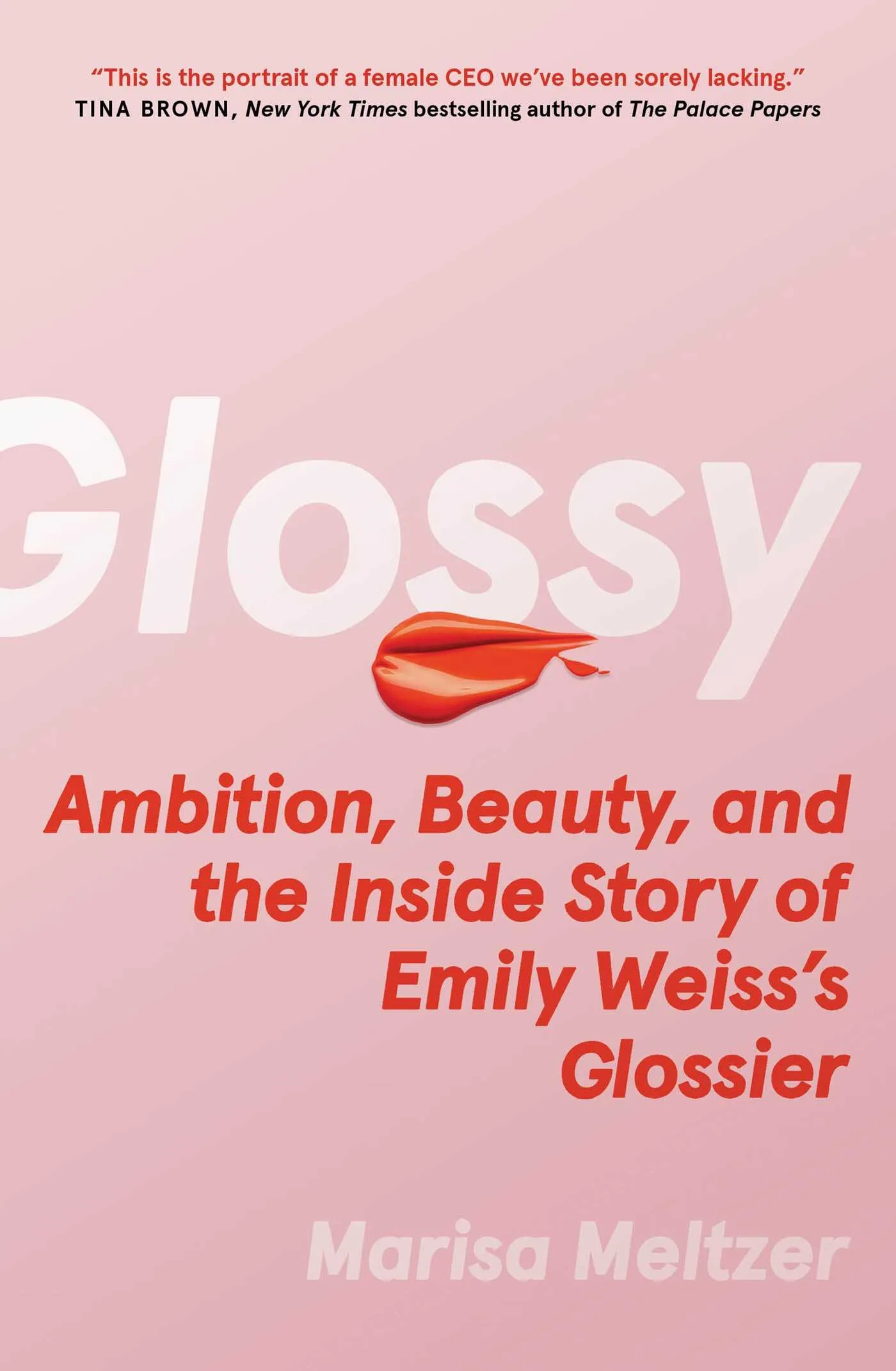
Glossy: Ambition, Beauty, and the Inside Story Of Emily Weiss’s Glossier is available now at Booktopia.










